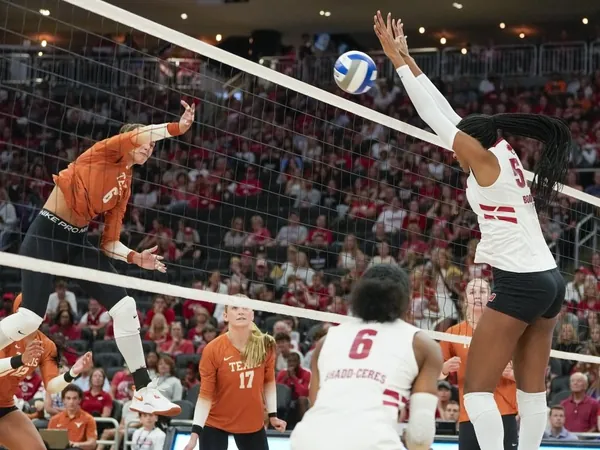
Third U.S. College Volleyball Team Refuses to Compete Against Transgender Opponent—What Does This Mean for Women's Sports?
2024-10-02
Author: Sophie
In a significant development in college athletics, the San Jose State women's volleyball team has faced yet another opponent who chose to forfeit rather than compete against them due to the presence of a transgender player on their roster. This marks the third such incident this season, raising critical discussions about inclusivity and fairness in women's sports.
The University of Wyoming became the latest team to forfeit its scheduled match against San Jose State, joining Boise State and Southern Utah in this controversial decision. “After a lengthy discussion, the University of Wyoming will not play its scheduled conference match against San Jose State University,” the Wyoming volleyball program stated, emphasizing that the match will be recorded as a forfeit. Notably, the schools involved have refrained from providing specific reasons for their decisions, but the trend suggests mounting tensions surrounding transgender athletes in competitive sports.
Blaire Fleming, a transgender female and a redshirt junior at San Jose State, plays as an outside and right-side hitter. Having transferred from Coastal Carolina, Fleming has made headlines not only for her athletic prowess but also for the legal battles emerging around transgender policies in collegiate sports.
In a subsequent response, San Jose State expressed disappointment over the forfeits, highlighting that their student-athletes are in compliance with NCAA and Mountain West Conference regulations. The statement read, "It is disappointing that our SJSU student athletes... are being denied opportunities to compete." This situation underscores the challenges faced by transgender athletes and the complexities involved in competing in a sport designed for women.
Adding to the controversy, a former teammate of Fleming, Brooke Slusser, has filed a lawsuit against the NCAA claiming concerns for her safety given her teammate's performance level. Slusser alleged that Fleming’s spikes, reportedly traveling upwards of 80 mph, posed a significant risk to players on the court. This claim not only intensifies the debate around safety in women’s sports but also raises questions about the adequacy of current policies regarding transgender athletes.
Activist Riley Gaines, who has been vocal against allowing transgender participants in women's sports, celebrated Wyoming's decision, tweeting her support and urging others to follow suit. Gaines's stance echoes a growing divide in public opinion regarding fairness versus inclusion in sports.
As the conversation around transgender athletes in sports heats up, one thing is clear: this debate is far from over. Will more teams choose to forfeit? How will this impact the landscape of women's sports going forward? The future of inclusivity in athletics hangs in the balance, with passionate arguments on both sides of the coin.









 Brasil (PT)
Brasil (PT)
 Canada (EN)
Canada (EN)
 Chile (ES)
Chile (ES)
 España (ES)
España (ES)
 France (FR)
France (FR)
 Hong Kong (EN)
Hong Kong (EN)
 Italia (IT)
Italia (IT)
 日本 (JA)
日本 (JA)
 Magyarország (HU)
Magyarország (HU)
 Norge (NO)
Norge (NO)
 Polska (PL)
Polska (PL)
 Schweiz (DE)
Schweiz (DE)
 Singapore (EN)
Singapore (EN)
 Sverige (SV)
Sverige (SV)
 Suomi (FI)
Suomi (FI)
 Türkiye (TR)
Türkiye (TR)